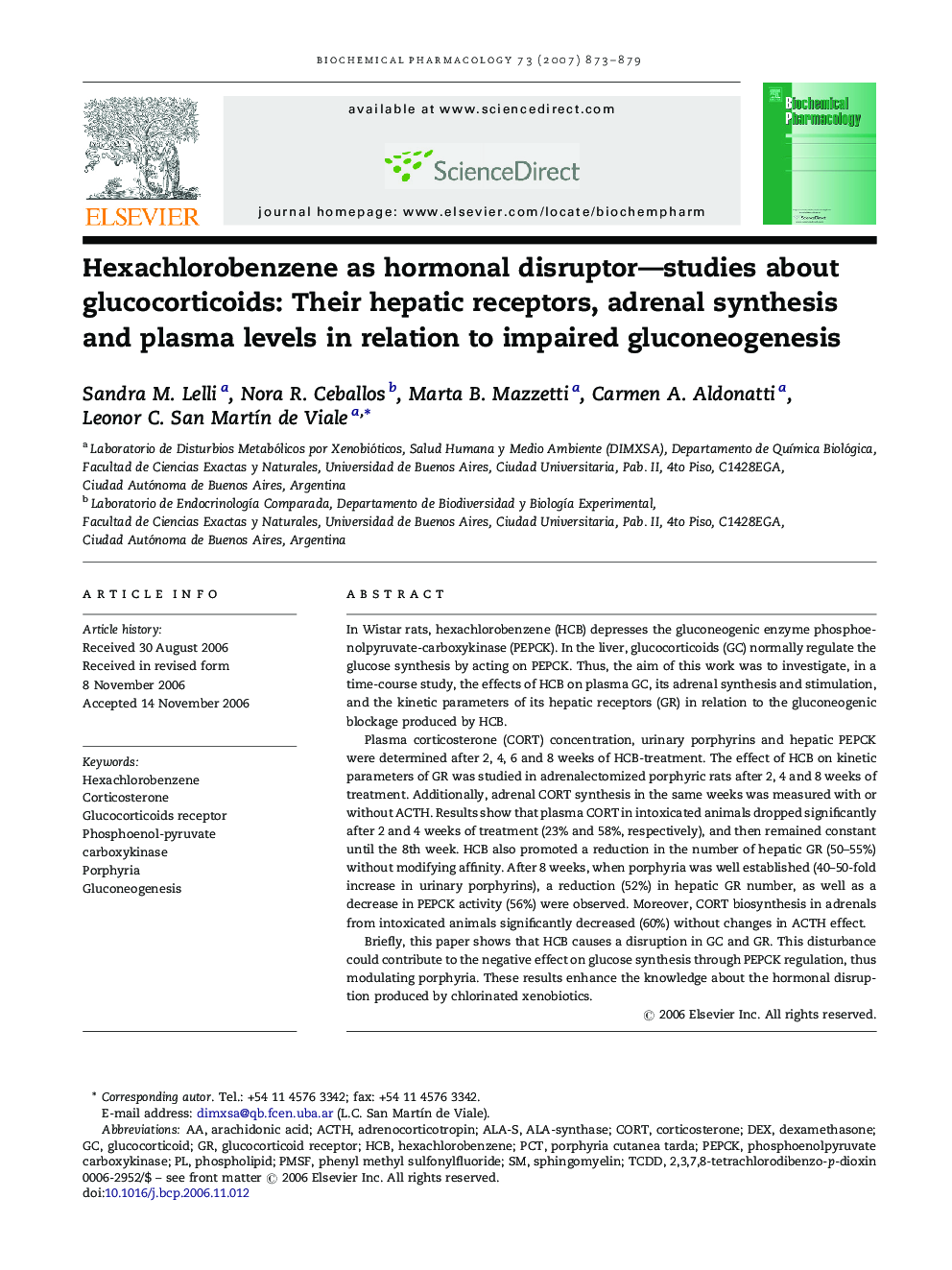| کد مقاله | کد نشریه | سال انتشار | مقاله انگلیسی | نسخه تمام متن |
|---|---|---|---|---|
| 2515065 | 1118499 | 2007 | 7 صفحه PDF | دانلود رایگان |

In Wistar rats, hexachlorobenzene (HCB) depresses the gluconeogenic enzyme phosphoenolpyruvate-carboxykinase (PEPCK). In the liver, glucocorticoids (GC) normally regulate the glucose synthesis by acting on PEPCK. Thus, the aim of this work was to investigate, in a time-course study, the effects of HCB on plasma GC, its adrenal synthesis and stimulation, and the kinetic parameters of its hepatic receptors (GR) in relation to the gluconeogenic blockage produced by HCB.Plasma corticosterone (CORT) concentration, urinary porphyrins and hepatic PEPCK were determined after 2, 4, 6 and 8 weeks of HCB-treatment. The effect of HCB on kinetic parameters of GR was studied in adrenalectomized porphyric rats after 2, 4 and 8 weeks of treatment. Additionally, adrenal CORT synthesis in the same weeks was measured with or without ACTH. Results show that plasma CORT in intoxicated animals dropped significantly after 2 and 4 weeks of treatment (23% and 58%, respectively), and then remained constant until the 8th week. HCB also promoted a reduction in the number of hepatic GR (50–55%) without modifying affinity. After 8 weeks, when porphyria was well established (40–50-fold increase in urinary porphyrins), a reduction (52%) in hepatic GR number, as well as a decrease in PEPCK activity (56%) were observed. Moreover, CORT biosynthesis in adrenals from intoxicated animals significantly decreased (60%) without changes in ACTH effect.Briefly, this paper shows that HCB causes a disruption in GC and GR. This disturbance could contribute to the negative effect on glucose synthesis through PEPCK regulation, thus modulating porphyria. These results enhance the knowledge about the hormonal disruption produced by chlorinated xenobiotics.
Journal: Biochemical Pharmacology - Volume 73, Issue 6, 15 March 2007, Pages 873–879